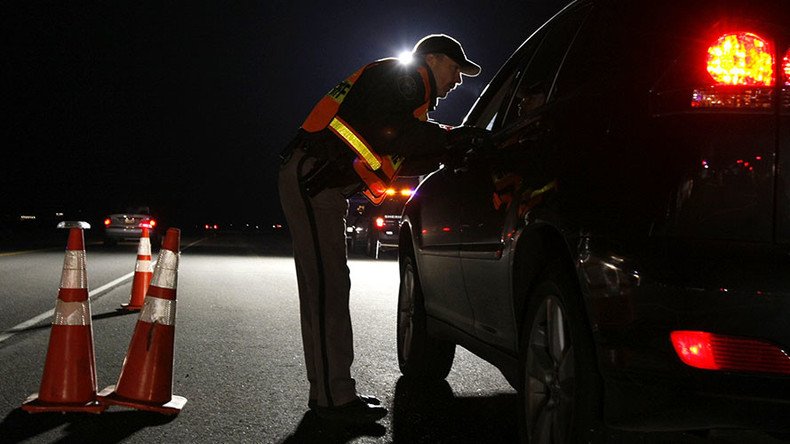‘Gotta cover our ass’: Connecticut police made up charges, ACLU lawsuit charges

Connecticut police are being sued by the ACLU over trumped up criminal charges against a protester filming his DUI checkpoint experience. The officers inadvertently recorded themselves with the protester’s confiscated cell phone.
“Our client is a guy who is very concerned with privacy, and who protests DUI checkpoints around the capital region here in Hartford, Connecticut,” the American Civil Liberties Union said in a statement on the lawsuit. “He feels they’re both unconstitutional and a waste of money. He has done public records investigations, for example, and recently found that for every two man hours put into a checkpoint, it yields one minor traffic citation – almost always for defective equipment. He was well-known to police, who also knew that he is a peaceful privacy and open-carry gun rights activist.”
Scientists sue NY state police for forcing them to ‘customize’ DNA test resultshttps://t.co/fxuNpPBJV7pic.twitter.com/gpiylCGgBV
— RT America (@RT_America) February 22, 2016
The arrest happened when Michael Picard was filming his protest near a police DUI checkpoint in West Hartford on September 11, 2015, where he carried a big sign that said: “Cops Ahead: Keep Calm and Remain Silent.”
He stood there for an hour and a half without any problems. Then state troopers, who were working the checkpoint, went over to Picard and confiscated his camera. Unaware that it was still rolling and recording, they took it back to the patrol car, where it captured them plotting about what to charge him with.
“Let’s give him something,” one trooper declared.
Another suggested, “We can hit him with creating a public disturbance.”
“Gotta cover our ass,” remarked a third.
After eight minutes of deliberations, the troopers decide to charge him with two criminal infractions.
“We did simple trespass, reckless use of a highway by a pedestrian,” and “creating a public disturbance,” officers’ voices are heard saying on the recording.
They then discussed a fabricated story to back up the charges, with the senior supervisor telling the other two, “What we say is that multiple motorists stopped to complain about a guy waving a gun around, but none of them wanted to stop and make a statement.”
The tickets given to Picard started a criminal prosecution in Connecticut superior court, until the state eventually dismissed both charges. It took a year for Picard to free himself from the criminal justice system.
READ MORE: DC police body cam policy altered after deadly shooting goes unrecorded
Picard then filed a complaint with state police, who claimed they would do an internal investigation. Police call him repeatedly to tell him he needed to come in and give a statement without his lawyer, otherwise the investigation couldn’t proceed. His lawyer told police they had to talk to him directly, not his client.
Consequently, Picard filed a lawsuit through the ACLU, which said in the complaint that police violated Picard’s First and Fourth Amendment rights. The suit argued police violated Picard’s First Amendment rights by arresting him for documenting and protesting government activity, and trumping up false charges related to that right. They also were said to have violated his Fourth Amendment right against warrantless seizure of his possessions.












